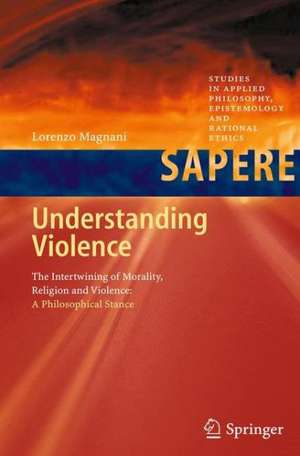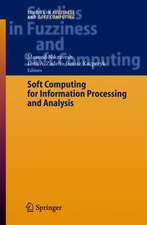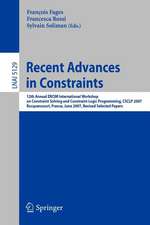Understanding Violence: The Intertwining of Morality, Religion and Violence: A Philosophical Stance: Studies in Applied Philosophy, Epistemology and Rational Ethics, cartea 1
Autor Lorenzo Magnanien Limba Engleză Paperback – 27 noi 2013
| Toate formatele și edițiile | Preț | Express |
|---|---|---|
| Paperback (1) | 989.96 lei 6-8 săpt. | |
| Springer Berlin, Heidelberg – 27 noi 2013 | 989.96 lei 6-8 săpt. | |
| Hardback (1) | 793.76 lei 6-8 săpt. | |
| Springer Berlin, Heidelberg – 4 iul 2024 | 793.76 lei 6-8 săpt. |
Din seria Studies in Applied Philosophy, Epistemology and Rational Ethics
- 20%
 Preț: 603.90 lei
Preț: 603.90 lei -
 Preț: 397.59 lei
Preț: 397.59 lei -
 Preț: 359.54 lei
Preț: 359.54 lei - 24%
 Preț: 787.50 lei
Preț: 787.50 lei -
 Preț: 390.08 lei
Preț: 390.08 lei -
 Preț: 370.88 lei
Preț: 370.88 lei - 15%
 Preț: 641.20 lei
Preț: 641.20 lei - 20%
 Preț: 991.60 lei
Preț: 991.60 lei - 20%
 Preț: 646.95 lei
Preț: 646.95 lei - 15%
 Preț: 653.98 lei
Preț: 653.98 lei -
 Preț: 384.48 lei
Preț: 384.48 lei -
 Preț: 395.47 lei
Preț: 395.47 lei - 18%
 Preț: 1216.95 lei
Preț: 1216.95 lei - 18%
 Preț: 947.50 lei
Preț: 947.50 lei -
 Preț: 388.72 lei
Preț: 388.72 lei -
 Preț: 390.08 lei
Preț: 390.08 lei -
 Preț: 395.09 lei
Preț: 395.09 lei -
 Preț: 394.12 lei
Preț: 394.12 lei - 15%
 Preț: 644.82 lei
Preț: 644.82 lei - 15%
 Preț: 698.15 lei
Preț: 698.15 lei - 18%
 Preț: 1840.91 lei
Preț: 1840.91 lei - 20%
 Preț: 656.84 lei
Preț: 656.84 lei -
 Preț: 389.70 lei
Preț: 389.70 lei - 20%
 Preț: 991.46 lei
Preț: 991.46 lei - 15%
 Preț: 585.73 lei
Preț: 585.73 lei - 15%
 Preț: 711.40 lei
Preț: 711.40 lei - 15%
 Preț: 589.33 lei
Preț: 589.33 lei - 15%
 Preț: 700.42 lei
Preț: 700.42 lei
Preț: 989.96 lei
Preț vechi: 1237.46 lei
-20% Nou
Puncte Express: 1485
Preț estimativ în valută:
189.45€ • 197.06$ • 156.40£
189.45€ • 197.06$ • 156.40£
Carte tipărită la comandă
Livrare economică 14-28 aprilie
Preluare comenzi: 021 569.72.76
Specificații
ISBN-13: 9783642270208
ISBN-10: 3642270204
Pagini: 356
Ilustrații: XVI, 340 p.
Dimensiuni: 155 x 235 x 19 mm
Greutate: 0.5 kg
Ediția:2011
Editura: Springer Berlin, Heidelberg
Colecția Springer
Seria Studies in Applied Philosophy, Epistemology and Rational Ethics
Locul publicării:Berlin, Heidelberg, Germany
ISBN-10: 3642270204
Pagini: 356
Ilustrații: XVI, 340 p.
Dimensiuni: 155 x 235 x 19 mm
Greutate: 0.5 kg
Ediția:2011
Editura: Springer Berlin, Heidelberg
Colecția Springer
Seria Studies in Applied Philosophy, Epistemology and Rational Ethics
Locul publicării:Berlin, Heidelberg, Germany
Public țintă
ResearchCuprins
“Military Intelligence”.- The Violent Nature of Language.- Moral Bubbles: Legitimizing and Dissimulating Violence.- Moral and Violent Mediators.- Multiple Individual Moralities May Trigger Violence.- Religion, Morality, and Violence.
Recenzii
From the reviews:
“This book is an impressive sample of applied philosophy. … The book basically is a philosophical attempt to give the reader an almost ‘metamoral awareness about (the) inherent violent nature of the ‘human condition’ … . the central theme of this philosophical study points at a multitude of urgent, highly problematic contemporary issues, and since violence as a structural dimension of life is an understudied theme in (moral) philosophy, let’s read, study and discuss this important, thought provoking work!” (Anton van Harskamp, Ethical Theory and Moral Practice, Vol. 16, September, 2013)
“Magnani’s book is a broad and deep meditation on the theme of violence. … the theoretical and methodological problem lies … to raise this issue to the status of an independent, chiefly philosophical subject. This requires a strategic twofold move: on the one hand, one needs a strong and comprehensive philosophical hypothesis about violence; on the other, it is necessaryto bring … the fragmentation of analyses consecrated to the issue of violence—and this result is achieved precisely thanks to a comprehensive philosophical hypothesis.” (Massimo Durante, Mind & Society, March, 2013)
“Understanding Violence is able to bring all of this home to the reader with such inspired clarity is certain testimony to its potential for everyday application. … Understanding Violence is a valuable contribution not only to the literature on the subject of violence, but to the possibility of a future with less of it, a shared future forged in mutual understanding rather than Hobbesian force. For anyone invested in engineering such a world, Understanding Violence is necessary reading.” (Jeffrey Benjamin White, Biosemiotics, April, 2012)
“The best word to describe this book is "evoking", a book that expressly aims at elevating violence, every kind of violence, to the status of a true philosophical and moral category ... . Magnani's book tackles several fronts with great intellectual determination, each of them as complex as fascinating. ... This book vindicates the intellectual importance of the topic of violence and claims it back into the feud of philosophy. This will surely lead us - at least in the mid-term - to unexplored ontological and epistemological grounds.” (Translated from Spanish: Valeria Isegoria in Revista de Filosofía Moral y Política N.º 46, enero-junio, 2012)
“This book is an impressive sample of applied philosophy. … The book basically is a philosophical attempt to give the reader an almost ‘metamoral awareness about (the) inherent violent nature of the ‘human condition’ … . the central theme of this philosophical study points at a multitude of urgent, highly problematic contemporary issues, and since violence as a structural dimension of life is an understudied theme in (moral) philosophy, let’s read, study and discuss this important, thought provoking work!” (Anton van Harskamp, Ethical Theory and Moral Practice, Vol. 16, September, 2013)
“Magnani’s book is a broad and deep meditation on the theme of violence. … the theoretical and methodological problem lies … to raise this issue to the status of an independent, chiefly philosophical subject. This requires a strategic twofold move: on the one hand, one needs a strong and comprehensive philosophical hypothesis about violence; on the other, it is necessaryto bring … the fragmentation of analyses consecrated to the issue of violence—and this result is achieved precisely thanks to a comprehensive philosophical hypothesis.” (Massimo Durante, Mind & Society, March, 2013)
“Understanding Violence is able to bring all of this home to the reader with such inspired clarity is certain testimony to its potential for everyday application. … Understanding Violence is a valuable contribution not only to the literature on the subject of violence, but to the possibility of a future with less of it, a shared future forged in mutual understanding rather than Hobbesian force. For anyone invested in engineering such a world, Understanding Violence is necessary reading.” (Jeffrey Benjamin White, Biosemiotics, April, 2012)
“The best word to describe this book is "evoking", a book that expressly aims at elevating violence, every kind of violence, to the status of a true philosophical and moral category ... . Magnani's book tackles several fronts with great intellectual determination, each of them as complex as fascinating. ... This book vindicates the intellectual importance of the topic of violence and claims it back into the feud of philosophy. This will surely lead us - at least in the mid-term - to unexplored ontological and epistemological grounds.” (Translated from Spanish: Valeria Isegoria in Revista de Filosofía Moral y Política N.º 46, enero-junio, 2012)
Textul de pe ultima copertă
This volume sets out to give a philosophical “applied” account of violence, engaging with both empirical and theoretical debates in other disciplines such as cognitive science, sociology, psychiatry, anthropology, political theory, evolutionary biology, and theology. The book’s primary thesis is that violence, also understood as violence beyond the domain of physical harm, is inescapably intertwined with morality and typically enacted for “moral” reasons. To show this, the book compellingly demonstrates how morality operates to trigger and justify violence and how people, in their violent behaviors, can engage and disengage with discrete moralities. By employing concepts such as “coalition enforcement”, “moral bubbles”, “cognitive niches”, “overmoralization”, “military intelligence” and so on, the book aims to spell out how perpetrators and victims of violence systematically disagree about the very nature of violence. The author’s original claim is that disagreement can be understood naturalistically, described by an account of morality also informed by evolutionary perspectives.
Caracteristici
Explores the problem of violence, an important but neglected topic of philosophical tradition Increases knowledge about the role of morality in violence Written by a leading expert in the field





















